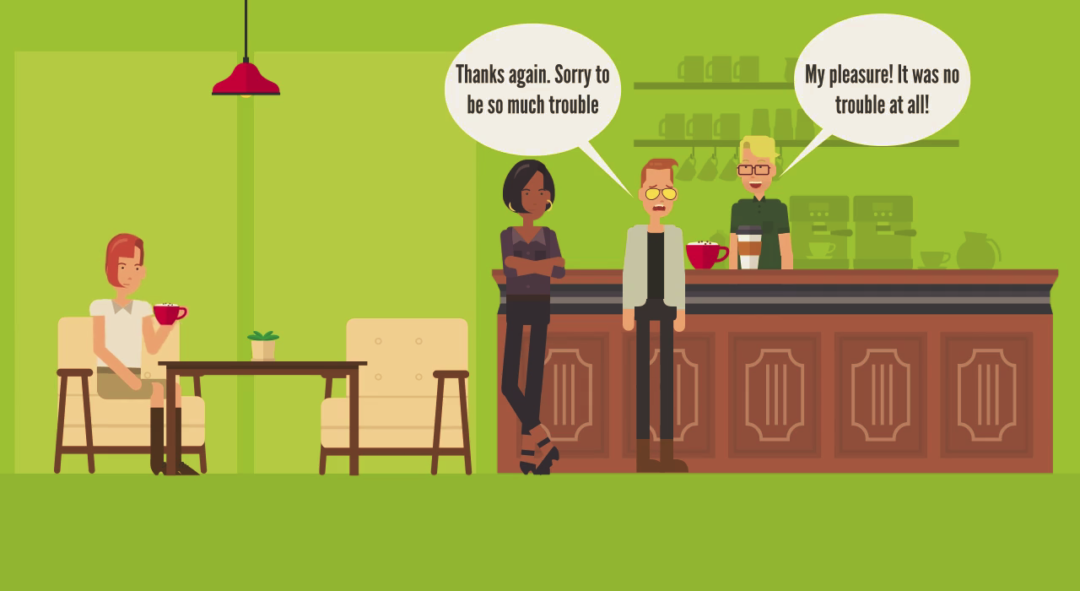Cultural Politeness: “You’re Welcome!” and other phrases
Knowing what to say when somebody says “Thank you” in the West is pretty important.
Here in Canada, we’re known for a few things. Cold winters, hockey, wildlife and being extremely polite. Canadians say “Sorry” and “Thank you” a lot. This politeness is a big part of western culture and it’s important to know how to respond when a westerner says “Thank you!”
How would you respond? If the first thing that comes to mind is, “No thank you!” as in, “No thanks is necessary.” or that you should wave them away, then you need to keep reading. Remember how I said that politeness is big in the west? When westerners are offered something that they’ve decided to decline they say, “No, thank you.” as in “No, but thank you for offering“. And waving you hand at somebody after they’ve said thank you in the west is considered rude and dismissive. So if a westerner says, “Thank you!” and you say, “No thank you!” or you wave your hand in response, they might be a little confused, or worse, offended.

So what you should say instead of “No, thank you.” when somebody says thanks? I’ll give you a hint; it’s in the title of this blog post! You got it, it’s “You’re Welcome!”. This is the most basic way in the west to acknowledge somebody’s thanks. I know what you’re thinking; isn’t “Welcome” a greeting? And you’re right, welcome is a greeting. But it’s also the most basic and polite way to respond to thanks in the west.
But that’s not the only phrase you can use. In fact, there are lots of phrases that you can use as a polite response to thank you and sometimes you’re welcome isn’t even the best one. Perhaps the best one that you can use while working in the service industry is “My pleasure”. My pleasure means that not only was helping not a problem, but that you enjoyed it. My pleasure is generally a very safe option to use when someone says thank you.
However, there are some situations where you may need to cater your response to fit what the guest says. For example, after you’ve helped a guest with a complicated problem or for a long period of time, they might say, “Thank you. I’m sorry for being so much trouble.”. If you simply say, “My pleasure.” the guest could take that to be dismissive or that you didn’t want to help them. Instead, a good response might be, “It was no trouble at all. I’m happy I could help!”.

Some phrases are more formal or polite than others and these phrases should be used with caution. Using phrases that are too casual, especially if you don’t have a rapport with the guest, can be unprofessional. “No problem”, “No worries”, “You bet”, and “You got it” are other less common phrases that should be handled with care.
That should give you a pretty good idea about how to respond when somebody says “Thank you!”. The 3A textbook is a great resource that goes into even more detail about polite phrases that you can use and when to use them.
Here’s a vocabulary list just in case you weren’t sure about a few words
- Necessary- Required to be done or achieved
- Dismissive- Feeling or showing that something isn’t worth consideration
- Rapport- a close and harmonious relationship in which the people or groups concerned understand each other’s feelings or ideas and communicate well.
Do you think you’ve got it? Try the quiz!